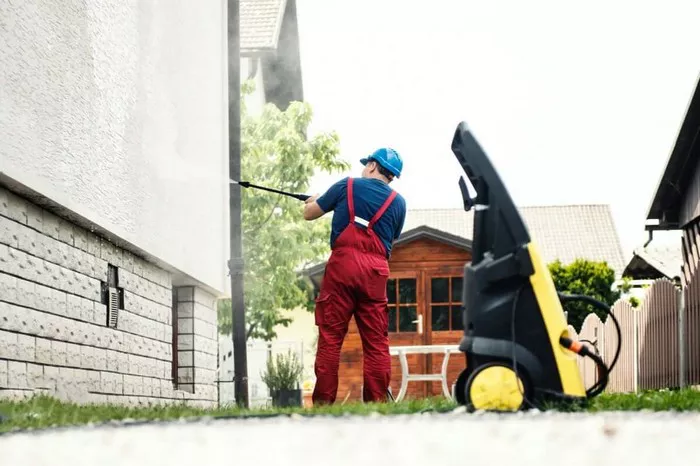Pressure washers are powerful tools designed to blast away dirt, grime, and stains from surfaces using high-pressure water jets. They’re commonly used for cleaning driveways, decks, sidewalks, vehicles, and more. However, when it comes to selecting the right pressure washer for your needs, the choice between electric and gas-powered models often sparks a debate.
Electric Pressure Washers
Electric pressure washers have gained popularity in recent years for their convenience and ease of use. Here’s a breakdown of their pros and cons:
Pros:
Lower upfront cost: Electric pressure washers are generally more affordable than their gas counterparts, making them a budget-friendly option for many users.
Easier to use and maintain: With no need for gas or oil changes, electric models are simpler to operate and require less maintenance.
Lighter weight and more compact size: Electric pressure washers are typically lighter and more compact, making them easier to maneuver and store, especially for homeowners with limited space.
Quieter operation: Electric motors produce less noise compared to gas engines, making electric pressure washers more suitable for residential areas where noise pollution is a concern.
Environmentally friendly: Electric pressure washers produce no emissions, making them a greener option for environmentally conscious users.
See also: Can You Wash Windows with a Power Washer
Cons:
Less powerful: Electric pressure washers are often less powerful than gas models, measured in terms of pounds per square inch (PSI) and gallons per minute (GPM). This makes them less effective for heavy-duty cleaning tasks.
Limited by cord length: The need for an electrical outlet limits the range of electric pressure washers, requiring users to stay within reach of a power source or use extension cords.
Not ideal for large or heavy-duty cleaning jobs: Due to their lower power output, electric pressure washers may struggle with tough stains or heavily soiled surfaces, making them less suitable for industrial or commercial use.
Gas Pressure Washers
Gas pressure washers are known for their high power and mobility, but they come with their own set of pros and cons:
Pros:
More powerful: Gas pressure washers deliver higher PSI and GPM ratings, making them capable of tackling tough cleaning tasks such as stripping paint, removing graffiti, or cleaning large surface areas.
Greater mobility: Unlike electric models, gas pressure washers are not restricted by cord length, allowing users to move freely without being tethered to a power source.
Often considered more durable: Gas pressure washers are built to withstand heavy use and are generally more rugged and durable than electric models.
Cons:
Higher upfront cost: Gas pressure washers tend to be more expensive than electric models, requiring a larger initial investment.
More complex to use and maintain: Gas engines require regular maintenance, including oil changes, spark plug replacements, and fuel management, which may be daunting for some users.
Heavier and bulkier: Gas pressure washers are typically larger and heavier than electric models, making them more challenging to transport and store.
Louder operation: Gas engines produce more noise compared to electric motors, which can be a concern for users in noise-sensitive environments.
Emits fumes: Gas-powered pressure washers emit exhaust fumes, contributing to air pollution and making them less environmentally friendly than electric models.
Making Your Choice
When choosing between electric and gas pressure washers, several factors should be considered:
Size and type of cleaning jobs: Determine the scale and frequency of your cleaning tasks to select a pressure washer with adequate power and performance.
Budget and maintenance: Evaluate your budget and willingness to invest time and effort in maintenance tasks such as oil changes and fuel management.
Portability and noise level: Consider how important mobility and noise level are for your specific needs and environment.
Safety Precautions
Regardless of the type of pressure washer you choose, it’s essential to follow safety guidelines, including wearing protective gear, avoiding contact with electrical components, and using the appropriate nozzles and pressure settings to prevent damage or injury.
Conclusion
There’s no definitive answer to the debate between electric and gas pressure washers—each type has its own advantages and limitations. The ideal choice depends on your unique needs, preferences, and circumstances.
In summary, electric pressure washers offer affordability, ease of use, and eco-friendliness, but may lack the power needed for heavy-duty tasks. On the other hand, gas pressure washers provide superior power and mobility but come with a higher price tag, increased maintenance requirements, and environmental concerns.
Consider factors such as the size and type of cleaning jobs, budget, maintenance preferences, and portability needs when making your decision. Additionally, factors like brand reputation and warranty coverage can also influence your choice and provide peace of mind.
Ultimately, prioritize your specific requirements and weigh the pros and cons of each type to select the pressure washer that best meets your cleaning needs and preferences.

